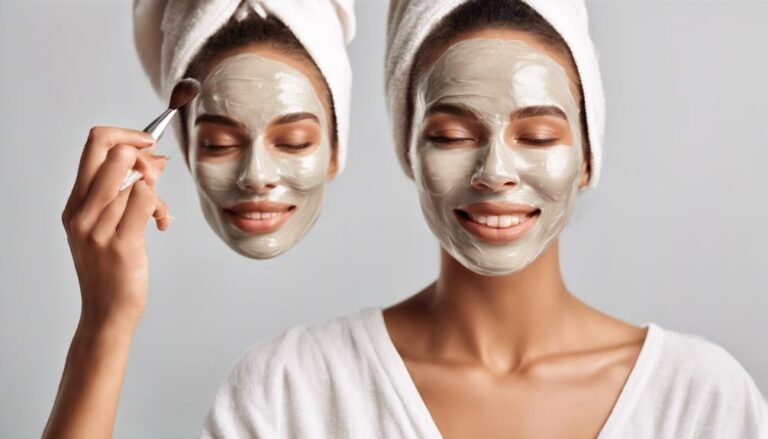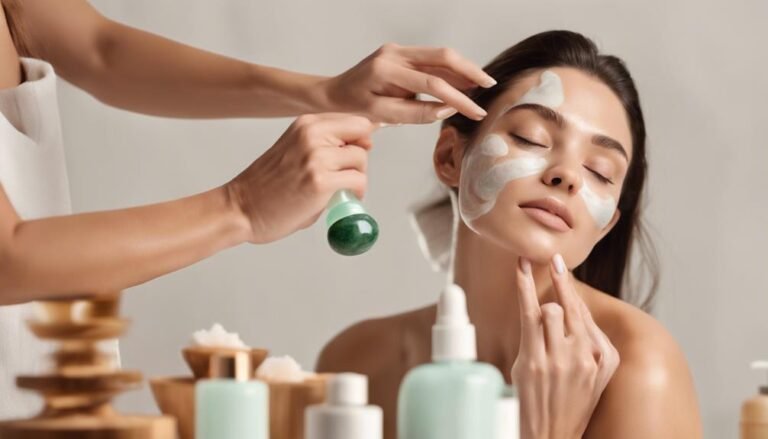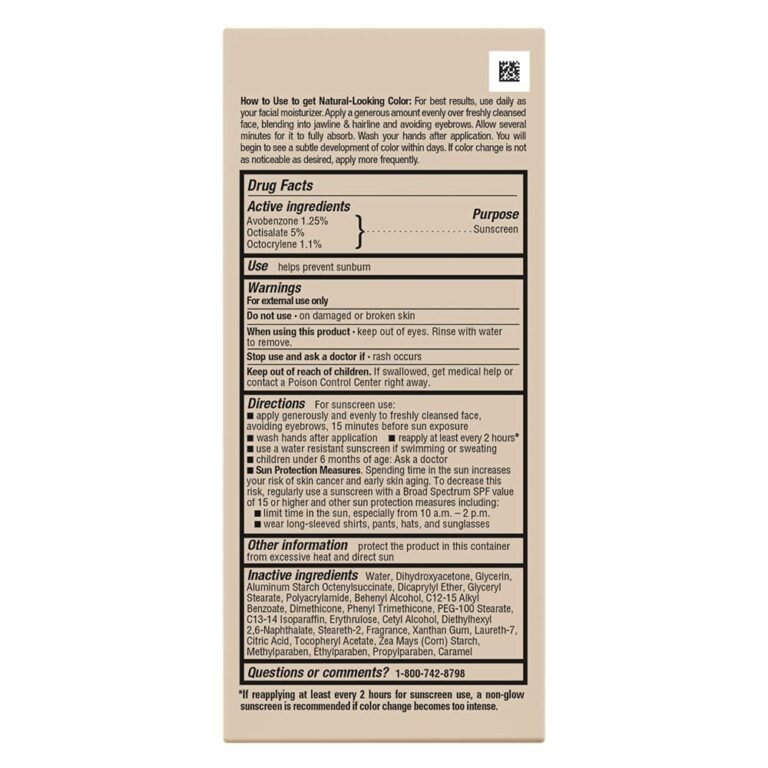The Ultimate Guide to Clear Skin
Did you know that nearly 50 million Americans struggle with acne each year? Achieving clear skin goes beyond just using skincare products; it requires a holistic approach that addresses various factors influencing your skin health. From understanding your skin type to incorporating essential nutrients into your diet, there are numerous steps you can take to improve your skin's appearance and overall well-being. So, are you ready to uncover the secrets to achieving radiant, blemish-free skin that will make you feel confident and comfortable in your own skin?
Key Takeaways
- Determine skin type for appropriate skincare.
- Hydrate skin for a radiant complexion.
- Use gentle cleansers and proper techniques.
- Maintain a balanced diet for clear skin.
- Avoid harmful skincare ingredients and prioritize sleep.
Understanding Your Skin Type
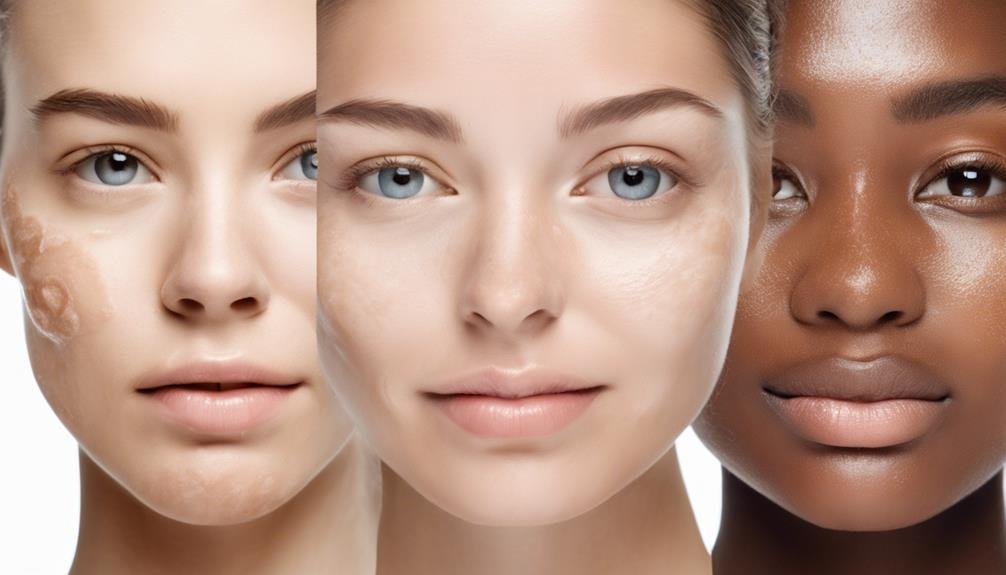
When it comes to achieving clear and healthy skin, understanding your skin type is the first crucial step. Your skin type plays a significant role in determining the most effective skincare routine for you. There are generally four main skin types: oily, dry, combination, and sensitive.
Oily skin tends to produce excess sebum, leading to a shiny complexion and potential acne breakouts. Dry skin lacks hydration, often feeling tight and rough. Combination skin has a mix of oily and dry areas, requiring a balanced approach. Sensitive skin is prone to reactions, redness, and irritation, needing gentle care.
To determine your skin type, observe how your skin feels throughout the day, especially after cleansing. Understanding your skin type helps you choose suitable products that cater to its specific needs, promoting a clear and radiant complexion. Consulting with a dermatologist can also provide valuable insights into your skin type and personalized skincare recommendations. By knowing your skin type, you can tailor your skincare routine for optimal results.
Importance of Hydration
Understanding the importance of hydration is key to maintaining healthy and clear skin. Hydration plays a crucial role in keeping your skin looking vibrant and youthful. When your skin is properly hydrated, it appears plump, smooth, and radiant. Dehydration can lead to a dull complexion, fine lines, and even breakouts.
Drinking an adequate amount of water daily is essential for flushing out toxins from your body and ensuring that your skin stays hydrated from within.
In addition to drinking water, using hydrating skincare products can further boost your skin's moisture levels. Look for products containing ingredients like hyaluronic acid, glycerin, and ceramides to lock in moisture and improve your skin's barrier function.
A consistent skincare routine that includes hydrating products tailored to your skin type can help you achieve a healthy and glowing complexion.
Proper Cleansing Techniques
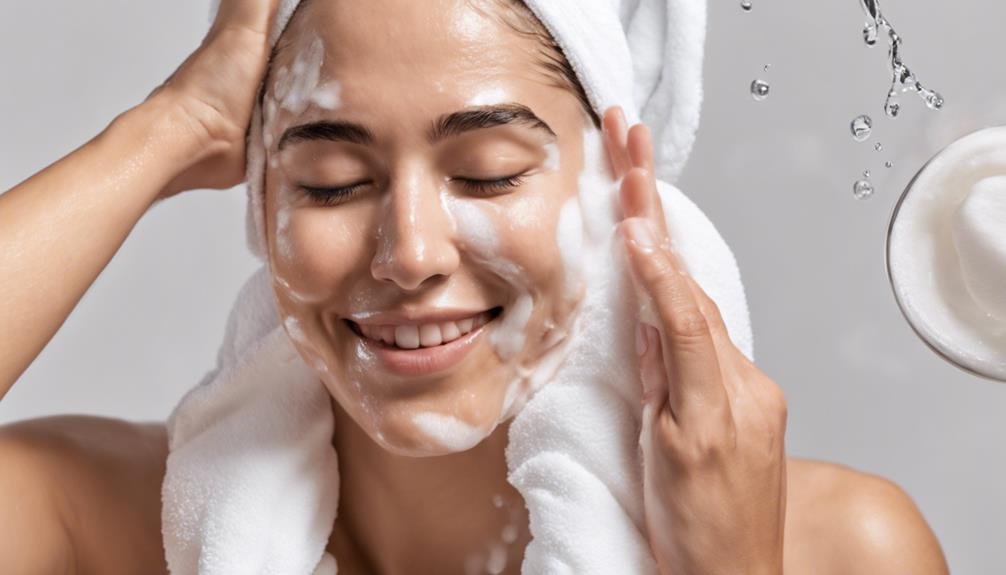
To maintain clear and healthy skin, mastering proper cleansing techniques is essential. Start by choosing a gentle cleanser suited for your skin type. Avoid harsh products that can strip away natural oils, leading to irritation and breakouts.
Wet your face with lukewarm water before applying a small amount of cleanser. Gently massage in circular motions, focusing on areas prone to oiliness or congestion. Rinse thoroughly with water, ensuring no residue is left behind.
For those wearing makeup, consider double cleansing. Use an oil-based cleanser first to break down makeup and sunscreen, followed by a water-based cleanser to remove any remaining impurities.
Incorporate exfoliation 1-2 times a week to slough off dead skin cells, promoting a brighter complexion. Pat your face dry with a clean towel and follow up with a suitable toner and moisturizer to lock in hydration.
Balancing Your Diet
Maintaining clear and healthy skin isn't just about external care; it also involves what you put into your body. Balancing your diet plays a crucial role in achieving glowing skin. Consuming a variety of fruits, vegetables, whole grains, and lean proteins can help regulate your skin's oil production and promote a clear complexion.
Incorporating foods rich in antioxidants, such as berries, spinach, and nuts, can combat inflammation and protect your skin from damage caused by free radicals.
Additionally, staying hydrated is essential for skin health. Drinking an adequate amount of water helps flush out toxins and keeps your skin hydrated from the inside out.
Limiting your intake of processed foods, sugary snacks, and greasy foods can also benefit your skin by reducing the likelihood of breakouts.
Incorporating Essential Nutrients

For optimal skin health, ensuring your diet includes essential nutrients is key. Incorporating vital nutrients into your daily meals can have a significant impact on your skin's appearance and overall health.
Antioxidant-rich foods such as berries, nuts, and green leafy vegetables can help combat free radicals that contribute to skin aging. Omega-3 fatty acids found in fish, flaxseeds, and walnuts can help maintain skin elasticity and hydration.
Vitamin C from citrus fruits, bell peppers, and broccoli promotes collagen production, essential for skin firmness. Additionally, zinc from sources like pumpkin seeds and chickpeas can help control oil production and reduce acne breakouts.
To ensure you're getting all the essential nutrients for clear skin, aim for a balanced diet that includes a variety of fruits, vegetables, whole grains, lean proteins, and healthy fats. Consider incorporating these nutrient-rich foods into your meals to support your skin's health from the inside out.
Effective Skincare Routine
Enhancing your skin's health and appearance requires a well-crafted skincare routine that caters to your specific needs and concerns. A basic routine includes cleansing, toning, moisturizing, and protecting your skin. Start by choosing products suitable for your skin type – whether it's oily, dry, combination, or sensitive.
Cleansing removes dirt, oil, and impurities, while toning helps balance the skin's pH levels. Moisturizing is essential to keep your skin hydrated and supple. Consider incorporating serums or treatments targeting specific issues like acne, aging, or hyperpigmentation. Exfoliation can help remove dead skin cells and improve skin texture, but it should be done gently and not too frequently to avoid irritation.
Consistency is key when it comes to skincare routines. Develop a morning and evening routine that works for you, and remember to patch test new products to prevent adverse reactions. Consulting a dermatologist can also help you create a personalized routine tailored to your skin's unique needs. By investing time and effort into a skincare routine that suits you, you can achieve clear, healthy skin.
Sun Protection Practices

To ensure your skin remains healthy and protected, incorporating sun protection practices into your skincare routine is paramount. The sun's harmful UV rays can damage your skin, leading to premature aging, sunburns, and even skin cancer. Here are some essential sun protection practices to keep your skin glowing and healthy:
- Apply sunscreen daily: Choose a broad-spectrum sunscreen with at least SPF 30 and apply it generously to all exposed skin.
- Seek shade: Especially during peak sun hours between 10 a.m. and 4 p.m., find shade to protect your skin from direct sunlight.
- Wear protective clothing: Opt for lightweight, long-sleeved shirts, pants, and wide-brimmed hats to shield your skin from UV rays.
- Use sunglasses: Protect the delicate skin around your eyes by wearing sunglasses that block UV rays.
- Reapply sunscreen: Remember to reapply sunscreen every two hours, or immediately after swimming or sweating, to maintain its effectiveness.
Managing Stress Levels
To effectively care for your skin and maintain its health, it's essential to address not only external factors like sun protection but also internal elements like stress management. Stress can have a significant impact on your skin, leading to breakouts, dullness, and premature aging. When you're stressed, your body releases cortisol, a hormone that can increase oil production and inflammation in the skin, exacerbating conditions like acne and eczema.
To manage your stress levels for clearer skin, consider incorporating relaxation techniques into your daily routine. Practices such as meditation, deep breathing exercises, yoga, or spending time in nature can help reduce stress and promote a sense of calm.
Additionally, getting regular exercise, prioritizing sleep, and maintaining a healthy diet can all contribute to lowering stress levels and improving your skin's overall appearance.
Avoiding Harmful Ingredients
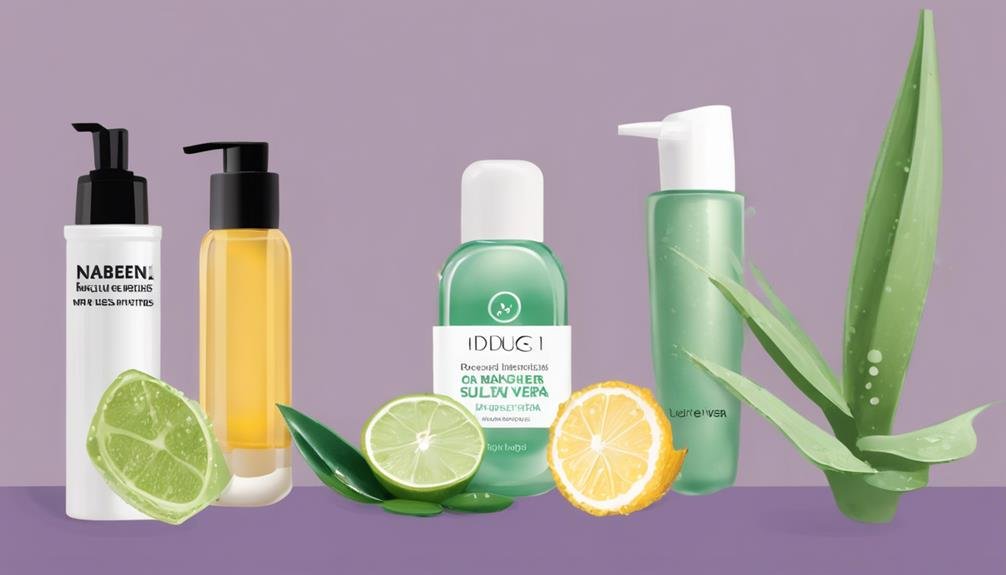
For maintaining a clear and healthy complexion, it's essential to be mindful of the ingredients in your skincare products. Your skin deserves the best, so steer clear of harmful ingredients that can do more harm than good.
Here are some key ingredients to avoid:
- Parabens: These preservatives have been linked to hormone disruption and skin irritation.
- Sulfates: Commonly found in cleansers, sulfates can strip your skin of its natural oils, leading to dryness.
- Synthetic Fragrances: Fragrances often contain phthalates, which can be harmful to your skin and overall health.
- Alcohol: Alcohol can be drying and irritating, especially for those with sensitive skin.
- Mineral Oil: While it may seem hydrating, mineral oil can clog pores and lead to breakouts.
Sleep and Skin Health
Quality sleep is a crucial factor in maintaining healthy skin. When you don't get enough rest, your skin can appear dull, and fine lines may become more prominent. During deep sleep, the body boosts blood flow to the skin, aiding in repair and rejuvenation. Lack of sleep can lead to increased cortisol levels, which may break down collagen, resulting in sagging skin and wrinkles.
Additionally, inadequate sleep can contribute to skin conditions like acne and eczema due to increased inflammation. To promote skin health, aim for 7-9 hours of quality sleep each night. Establishing a relaxing bedtime routine, creating a comfortable sleep environment, and limiting screen time before bed can help improve your sleep quality.
Prioritizing sleep not only benefits your skin but also enhances your overall well-being. Take the time to care for yourself and your skin by ensuring you get the rest you need.
Professional Treatments to Consider
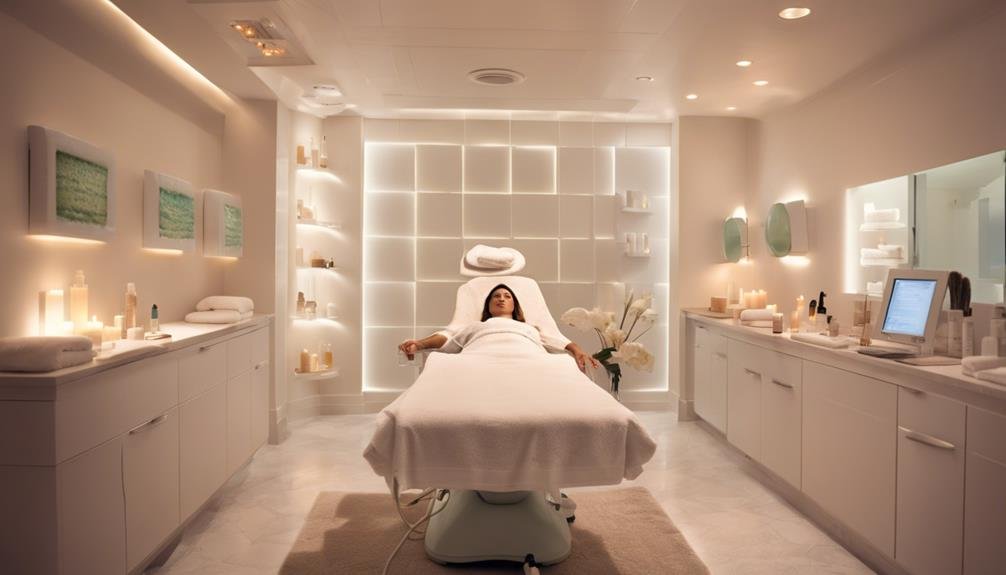
Ensuring your skin's health may sometimes require the assistance of professional treatments. When at-home remedies aren't providing the desired results, seeking the expertise of skincare professionals can be beneficial.
Here are some professional treatments to consider:
- Chemical Peels: A procedure where a chemical solution is applied to the skin to exfoliate and improve its appearance.
- Microdermabrasion: A non-invasive treatment that gently exfoliates the skin, improving texture and tone.
- Laser Therapy: Utilizing different wavelengths of light to target specific skin concerns like acne, pigmentation, or signs of aging.
- Professional Facials: Customized treatments that can deeply cleanse, exfoliate, and nourish the skin.
- Microneedling: A minimally invasive treatment that uses small needles to stimulate collagen production, improving skin texture and firmness.
These treatments, when performed by skilled professionals, can help address various skin issues and achieve clearer, healthier skin. Consult with a dermatologist or skincare specialist to determine the best professional treatment for your specific skin concerns.
Maintaining Consistency
To maintain clear and healthy skin, consistency in your skincare routine is key. Establishing a regular regimen helps your skin adapt and improve over time. Here are some essential tips to help you stay consistent in your skincare journey:
| Tip | Description | Benefits |
|---|---|---|
| Stick to a Routine | Create a morning and evening skincare routine tailored to your skin type. Consistency yields better results. | Improved skin texture and overall appearance. |
| Track Your Progress | Keep a skincare journal to monitor changes in your skin. This helps you identify what works best for you. | Enables you to make informed skincare choices. |
| Be Patient and Kind | Understand that clear skin takes time. Treat your skin gently and avoid harsh products that can cause irritation. | Prevents damage and promotes skin healing. |
| Prioritize Self-Care | Consistent skincare is a form of self-care. Make it a relaxing ritual rather than a chore to boost your well-being. | Enhances your mental health and confidence. |
Frequently Asked Questions
Can Wearing Makeup Worsen Acne Breakouts?
Wearing makeup can potentially worsen acne breakouts due to pore-clogging ingredients. Opt for non-comedogenic products and always cleanse your face thoroughly at the end of the day to prevent exacerbating acne.
Is It Safe to Pop Pimples at Home?
Before you decide to pop pimples at home, remember that it can lead to scarring, infections, and more breakouts. It's best to let a skincare professional handle extractions to avoid potential skin damage.
How Often Should I Change My Pillowcase for Clear Skin?
To maintain clear skin, change your pillowcase every 2-3 days. Dirt, oils, and bacteria can accumulate on your pillowcase and transfer to your skin, potentially causing breakouts. Regular changes can help prevent this.
Can Stress Cause Sudden Skin Issues?
Yes, stress can cause sudden skin issues. When you're stressed, your body releases hormones that can trigger inflammation, oil production, and worsen existing skin conditions. Prioritize self-care and stress-reducing activities to help manage your skin health.
Does Drinking Alcohol Affect Skin Health?
Drinking alcohol can affect skin health by dehydrating your skin, leading to dryness and dullness. It can also dilate blood vessels, causing redness and inflammation. Limiting alcohol intake and staying hydrated can help maintain healthier skin.
Conclusion
In conclusion, achieving clear skin is not just about appearance, but also about self-care and overall well-being. Did you know that 85% of people experience improved skin health by following a consistent skincare routine tailored to their skin type? By understanding your skin, staying hydrated, eating well, avoiding harmful ingredients, and incorporating professional treatments, you can achieve vibrant, youthful skin. Remember, consistency is key to maintaining your skin's health and radiance.




